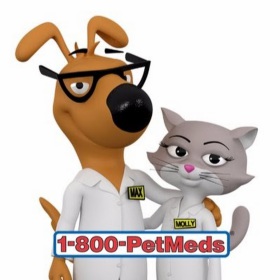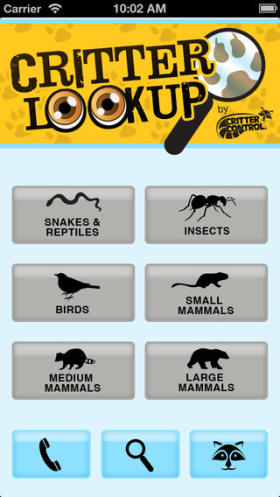Canine Coughs
Dogs cough for a variety of reasons, some of which can be serious in themselves and others that are signs of an underlying problem. Internal parasites, heartworm disease, distemper, fungus
diseases, tuberculosis, allergies, and pollutants such as cigarette smoke can cause Fido to cough.
Coughs are triggered by irritants in the air passages and can be characterized as dry and hacking; moist and bubbly; gagging; wheezy; harsh; or weak. It can be frequent, chronic, or intermittent, and
is often self-perpetuating as it dries the throat and leads to further irritation.
High, dry coughs are typical of kennel cough or acute tracheobronchitis. A dog with kennel cough seems to feel fine otherwise. Cases usually heal in about two weeks, but the frequent bouts of
coughing can be annoying to the owner who lies awake listening to his pet hack away. Treatment includes isolation to avoid infection of other family or kennel dogs, monitoring of temperature, rest,
and if the coughing is severe, use of a children's over-the-counter cough syrup. A humidifier can help the dog breathe easier and thus reduce coughing and further throat inflammation.
Kennel cough in puppies and toy breeds can be another story; the throat irritation can be accompanied by thick secretions that can cause pneumonia.
Bordatella vaccine protects dogs from several strains of kennel cough. The intranasal version of the vaccine is more effective than the inoculation. Any dog that is constantly exposed to other dogs
away from home should be protected against kennel cough.
Many dog owners think that distemper is not a problem because puppies are vaccinated against it. However, not all puppies and dogs are vaccinated, and the disease remains a serious threat to
puppies.
When puppies are born, they get immunity to disease through their mother's antibodies. These antibodies diminish as the pup grows, and vaccinations may not rebuild that immunity quickly enough to
protect the pup from distemper and other diseases. Many veterinarians recommend that puppies be kept away from strange dogs for at least 12 weeks and preferable for 14-16 weeks to make sure the
vaccines have replaced the immunity formerly provided by their mother.
Distemper can be mild in dogs that are in good condition or severe in ill-nourished animals. It can be fatal, especially in young puppies or debilitated dogs. Secondary infections can also be a
problem.
The dry cough associated with distemper appears in the first stage of the disease, when the dog is listless and has a fever (103-105() and a thick, yellow discharge from nose and eyes. Although these
symptoms resemble those of a common head cold in humans, dogs do not catch colds; when they appear, the dog should be taken immediately to the clinic.
Distemper is preventable by vaccination. Veterinarians vaccinate puppies and give yearly boosters with the annual checkup and some veterinarians run vaccination clinics at reduced rates.
Owners of unvaccinated pets should get to a veterinarian for a preventive program. Those who choose shot clinics should make sure the vaccines are handled properly and are administered by a licensed
professional. Rabies vaccine must be administered by a veterinarian according to Ohio law. Any dog showing signs of illness should be examined before being vaccinated.
Infestation of internal parasites such as roundworms and heartworms can cause coughing.
Roundworms live in the canine intestine. The dog can become infected by licking or eating soil contaminated with eggs. The eggs are swallowed and hatch in the intestine; the larval worms travel to
the lungs in the bloodstream, crawl up the windpipe, and are swallowed to return to the intestine and mature into adults. As they migrate up the windpipe, the larva can cause bouts of
coughing.
Puppies can be born with roundworms if the mother is infested. Pregnant bitches can carry encysted roundworm larva in their tissues. In the last stages of pregnancy, the larva are emitted, enter the
bloodstream, and travel to the puppies through the placenta. Worming the mother before birth is ineffective against encysted larvae.
If a dog is in good condition, a light infestation of roundworms is seldom a problem. Heartworm infestation is another thing altogether; by the time the infected dog coughs, he is already severely
infected with this serious and often fatal disease.
Heartworms are transmitted to dogs by mosquitoes. The mosquito bites the infected dog, ingests the tiny heartworm microfilaria, provides a host for the next stage of development of the parasite, then
transfers the juvenile larvae to the bloodstream of the next dog she feeds on. The microfilaria swim to the lungs, where they mature and reproduce, sending more microfilariae into the dog's
bloodstream to be ingested by a mosquito.
The process of infection takes at least six months. The cough begins when the dog has enough adult heartworms to interfere with exchange of oxygenated blood between lungs and heart. A heartworm
infested dog becomes debilitated, unable to handle mild exercise without wheezing and coughing. He may cough from the effort of walking from one side of the room to the other in severe cases.
Treatment of heartworm is extensive but is successful if the disease is not too far advanced and if the dog is in otherwise good health. Treatment involves injections of arsenic to kill the
heartworms and then further injections to kill the circulating microfilariae. Initial injections must be followed by several weeks of rest until the dog's system can absorb the dead worms. The second
set of injections is given six weeks after the first. Prevention of heartworm infestation is easier than cure and kinder than a bout with the parasite. An annual blood test to determine the presence
of microfilariae should be done before beginning the preventive medication. Most veterinarians now conduct two tests, one to detect microfilariae and one to ascertain if non-reproducing adult worms
are already present in the lungs. If the test is negative, daily and monthly preventive tablets are available, some with agents to handle whipworms and hookworms.
Many dog owners use heartworm preventive all year, especially if they are also fighting infestations of other worms. Prevention is not cheap, but it is far less expensive than treatment and it is far
easier on Fido's system and quality of life.
Although uncommon, tuberculosis does affect dogs and can cause upper respiratory symptoms. The cough associated with this bacterial infection is moist and productive; dogs may hack up bloody sputum,
and suffer from labored breathing. Diagnosis is by x-ray of the lungs. Dogs and humans can infect each other with tuberculosis.
The symptoms of several fungus diseases resemble those of tuberculosis. Dogs kenneled in or near old chicken or pigeon coops or in the presence of other large accumulations of bird dung can inhale
fungus spores that can cause chronic coughs, bouts of pneumonia, weight loss, undulating fever, and breathing difficulties. Diagnosis is difficult; again, prevention is the best course.
Coccidiosis is a protzoan disease with symptoms that resemble distemper. It is most common in dirty kennels. Cleanliness is the best antidote. Allergies to pollen, house dust, molds, insect bites,
and foods can cause coughing, sneezing, and general itchiness.
Any repeated episodes of coughing should be investigated. Owners should note any other symptoms that accompany the cough and make a list for the veterinarian. And those cough-producing diseases that
can be prevented with a little effort certainly should be part of the pet-and-owner lifetime contract.













